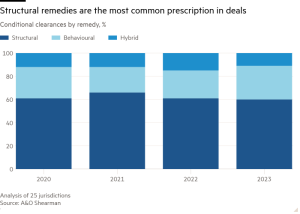Arizona’s proof of citizenship complicates voting in US swing state
For Kyle Nitschke, the US Supreme Court’s decision to broaden citizenship checks for Arizona voters could not have come at a worse time.
The director of advocacy group Arizona Students’ Association was registering university students to vote when the court on August 22 granted the Republican National Committee’s request to reject state registration forms if voters failed to provide proof of citizenship.
It was “in the middle of welcome week for these college students moving in as well. I mean, it was ridiculous timing,” he said.
The court’s decision is the latest measure to complicate voting in Arizona, the only US state that requires documentary proof of citizenship to vote in local and state elections.
Critics argue it imposes “discriminatory burdens” on voters for whom acquiring citizenship documents is hardest, along with naturalised US citizens.
“The whole point . . . is to make it harder for people to vote,” said Mark Kelly, the Democratic US senator from Arizona. “When they can throw any kind of barrier in front of a prospective voter, it often benefits the people that are behind these efforts.”
Coming just weeks ahead of a registration deadline, the ruling threw the voter enrolment system of a critical swing state into uncertainty in the tight presidential race between Kamala Harris and Donald Trump.
New voters and minority groups have the power to swing Arizona, where Biden defeated Trump by just 10,457 votes in 2020.
“We’ve got to struggle to figure out how to apply this really confusing ruling when we already have multiple layers of confusion because of these bad policies that are currently law in Arizona,” said Adrian Fontes, Arizona’s Democratic secretary of state, the official in charge of elections.


While it has long been illegal for non-citizens to vote in federal or state elections and false citizenship claims are subject to criminal prosecution, academics and legal experts say violations of the rules are rare.
The citizenship requirement is contained in Arizona’s voting law, passed in 2022 but not fully implemented after it was challenged by the Biden administration and voting rights groups. That challenge is now before an appeals court.
The law was sponsored by Jake Hoffman, a Republican Arizona senator who was indicted as a “fake elector” for allegedly seeking to overturn president Joe Biden’s win in the 2020 presidential polls. He has pleaded not guilty.
Proponents of the law say it is needed to ensure electoral integrity. “We want to maintain the sanctity of the vote,” Warren Petersen, Republican president of Arizona’s senate, told the FT, arguing the statute merely “tightened up” existing state rules.

“It is preposterous . . . to expect that we shouldn’t have ID required for something so sacred as the vote,” he added.
John Matthews, president of the Republican club in Sun City, a retirement community in Phoenix, argued at a recent meeting that it did not matter if some voters found voting requirements complex.
“You’ve got a responsibility. Go get your birth certificate,” said the 71-year-old ex-Air Force member.
“It doesn’t mean you get rid of the law because you have some small amount of people that don’t want to do it.”
But critics accuse Arizona’s Republicans of seeking to disenfranchise younger voters or minorities such as Latinos and Native Americans — groups that have historically skewed Democrat.

César Fierros, spokesperson at Living United for Change in Arizona, an advocacy group that has sued to block the voting law, argued that the measure was intended “to discourage people from registering in the first place,” especially first-time Latino voters or Spanish-speaking US citizens.
Nearly a quarter of Arizona voters in this year’s election are expected to be Latino, according to the National Association of Latino Elected and Appointed Officials.
As the youngest ethnic or racial group in the state, and one with high numbers of naturalised citizens, any change in registration rules is likely to have an outsized impact on them.
But some Latinos support citizenship checks. At a recent Trump campaign event in Phoenix, Alex Moreno, a 62-year-old Trump supporter, said there were people who “find loopholes to beat the system in order to get [fake] documents . . . It’s not fair for the person that’s standing in line”.

Three hours east of Phoenix, attendees at Indigenous Peoples’ Day celebrations in the Fort Apache reservation said the 2022 law was part of long-standing efforts to sideline Native Americans’ vote.
Indigenous people account for roughly 6 per cent of Arizona’s population, a considerable portion in presidential elections with slim margins.
“It’s organised chaos from certain people in the legislature that don’t want us to vote,” said Jaynie Parrish, founder of advocacy group Arizona Native Vote.
Voting access has not been straightforward.
The remoteness of tribal lands complicates travel to polling stations, while high homelessness rates or non-traditional forms of address make it hard to register or receive ballots by mail.
The elderly sometimes have no birth certificates due to home births or have documents with conflicting birth dates.
“There’s a lot of disconnect on trying to put on requirements that we have no say in,” said Eileen Crocker, co-ordinator of White Mountain Apache tribe’s student programme.
Crocker herself was among some registered voters who discovered their status had been changed to “inactive”. “I have no idea what happened,” said the 51-year-old, who has voted since she was 18. “It was kind of disheartening . . . [and] eye opening for me.”

The debate was inflamed further when the state last month discovered approximately 218,000 registered voters were missing documentary proof of citizenship — a 20-year computer glitch that Fontes said affects more Republicans than Democrats. He is “very confident” the final sum will be lower once all checks are completed.
Arizona’s high court ruled these voters were entitled to receive a full ballot. Doing otherwise would “disenfranchise voters en masse”, it said.
Arizona’s law is part of a broader push by Republican state legislatures and conservative groups to impose proof of citizenship requirements across the US.
A New Hampshire statute set to be enacted after the general election includes citizenship checks for first-time voters and scraps the use of affidavits that allow individuals without proper documents to cast their ballots at the polls.
Several US states will ask voters in the 2024 election to approve constitutional amendments that would bar non-citizens from voting.
Trump allies have also filed a string of lawsuits claiming non-citizen voting could affect the outcome of the 2024 election. America First Legal, led by Stephen Miller, Trump’s former senior adviser, has filed several lawsuits in Arizona. Fontes’s office declined to comment.
Critics argue these moves undermine faith in elections and give Trump — who faces two indictments accusing him of seeking to overturn the 2020 presidential polls — the means to challenge the outcome of the 2024 race in case of defeat.
Travis Crum, associate professor of law at Washington University in St Louis, warned the challenges could serve as “placeholders” that could be used to overturn results.
Trump’s campaign did not respond to a request for comment.
“I am very concerned,” Kelly said. “The folks that were behind trying to overturn the 2020 election are much better prepared this time around.”
#Arizonas #proof #citizenship #complicates #voting #swing #state




